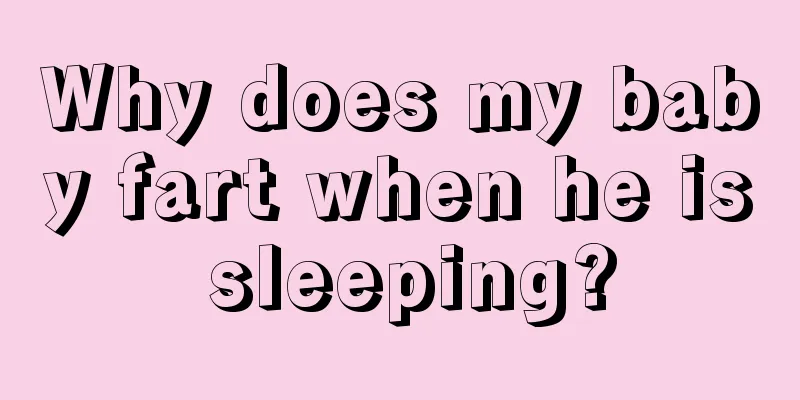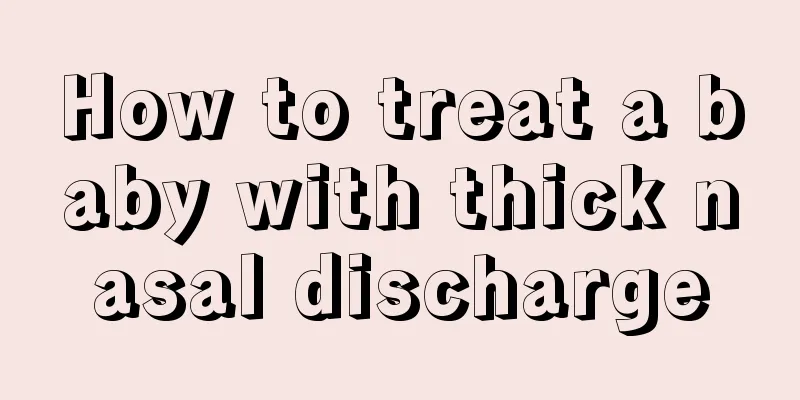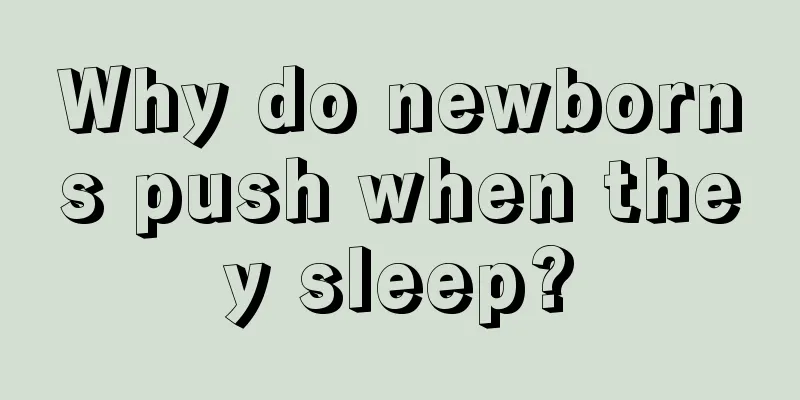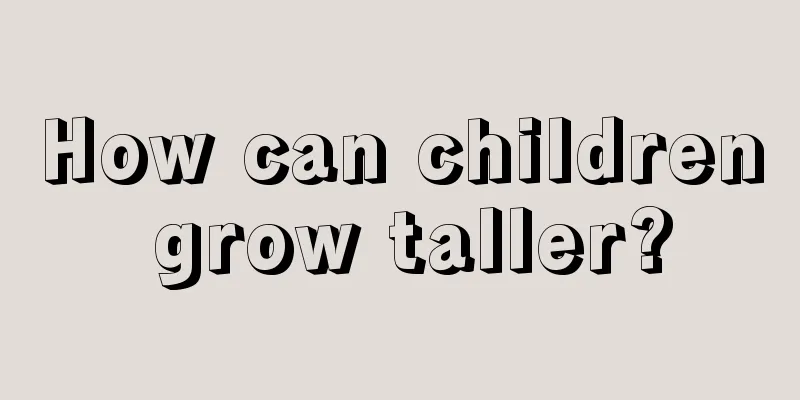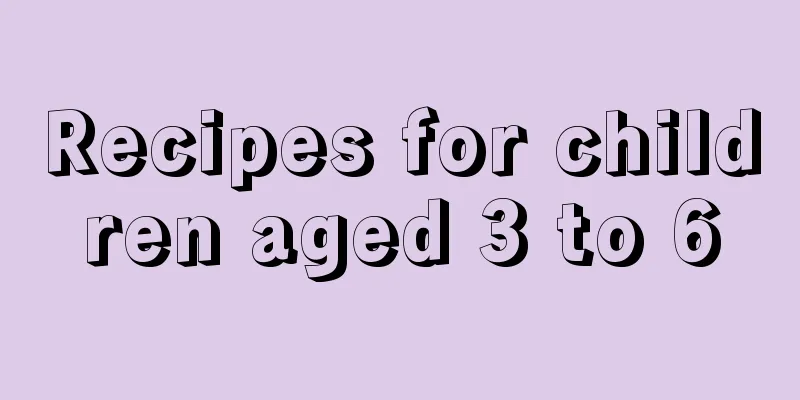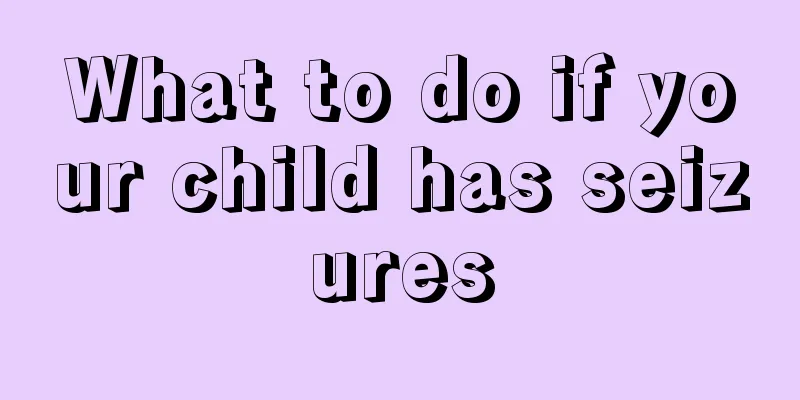Why does the baby have a fever repeatedly?
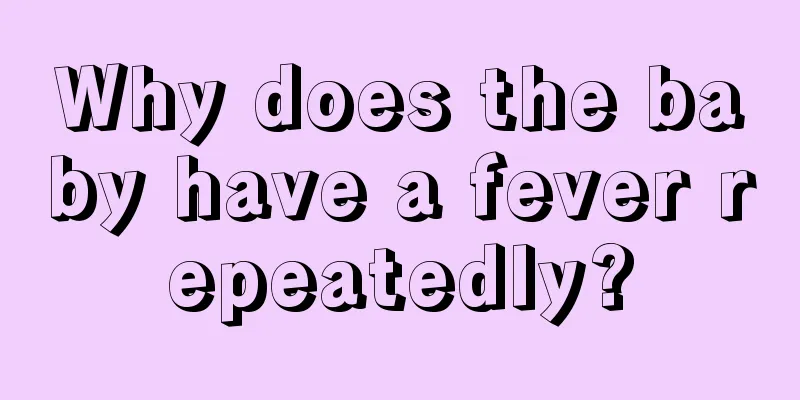
|
It is normal for babies to have repeated fevers. Generally speaking, this situation is more common in children because their bodies have not yet developed, but their metabolism is relatively fast, so sometimes they will have fever. Therefore, mothers should not be too nervous after this situation occurs. It is recommended to go to the hospital for a comprehensive examination first to see what is going on. Suggestion: When it comes to what to do if your child has recurring fever, mothers should not be anxious. I will give you a detailed answer. There may be a lot of answers, so please read them patiently. The baby's body temperature often fluctuates due to certain factors. For example, in the evening, the baby's body temperature is often higher than in the early morning; the baby's body temperature will also rise temporarily after eating, crying, or exercising; if the baby's clothes are too thick, the room temperature is too high, etc., the baby's body temperature will also rise. If your baby has this temporary, small temperature fluctuation, it should not usually be considered pathological as long as he is in good general condition, energetic, and has no other symptoms and signs. Normal body temperature reference value Oral temperature range: 36.7℃~37.7℃ Axillary temperature range: 36.0℃~37.4℃ Rectal temperature range: 36.9℃~37.9℃ ▲Choose the appropriate cooling method When a baby has a fever, there are two main methods of cooling down commonly used clinically: physical cooling and drug cooling. No matter what method is used to help the baby cool down, it should be decided based on the baby's age, physical condition and degree of fever. It is generally not advisable to use drugs to reduce fever in neonates; for fever caused by general infections in infants and young children, it is best to use appropriate physical cooling measures first. However, it is not advisable to use cold compresses and alcohol baths to cool down children with rash diseases such as measles, so as to avoid irritating the skin and affecting the outbreak of the rash. If you use medication to reduce fever, be careful not to use too large a dose, so as to avoid causing the baby to sweat too much and cause collapse or electrolyte imbalance. There are many types of antipyretic drugs commonly used in pediatrics. No matter which antipyretic agent is used, it must be done under the guidance of a doctor. Practical physical cooling methods for families ▲Wet and cold compress on the head: Apply a wet towel to the forehead of the baby with fever, and change it every 2 to 3 minutes. ▲Ice pillow: Crush the ice and put it into an ice bag (or hot water bag) together with water. After expelling the air, tighten the bag and place it on the neck of the baby with fever. ▲Warm water bath: Let the baby with fever bathe in warm water at about 30℃ for 20 to 30 minutes ▲ Sponge bath: Soak gauze with 30% to 50% alcohol or cold water, and wash the upper limbs, lower limbs, forehead, neck, armpits and groin of the baby with fever. Precautions for home medication to reduce fever ▲Please take the medicine under the guidance of a doctor. ▲Don’t be too hasty when giving medicine to babies with fever. If the fever does not subside after taking the medicine once, you need to wait 4 to 6 hours before taking the medicine again. ▲The dosage of antipyretic medicine given to babies should not be too large. For example, for the commonly used drug paracetamol, children should take 10 to 15 mg per kilogram of body weight. If a baby takes more than 3 grams of paracetamol per day, acute poisoning may occur, and even fatal liver damage may occur. ▲It is not advisable to let the baby take multiple antipyretic drugs in a short period of time, and the temperature reduction should not be too large or too fast, otherwise the baby will experience symptoms such as body temperature not rising and fainting. ▲Antipyretics only have an antipyretic effect when the baby has a fever. When the baby does not have a fever, taking antipyretics will not prevent fever. ▲After giving your baby antipyretics, if your baby sweats a lot, you should give him water in time to avoid collapse. So after the above introduction, we can see that if a child has this kind of repeated fever, he should first go to the hospital for a comprehensive examination to see what the cause is. Sometimes it is viral, and sometimes it is caused by the child’s own development. So mothers should not use medicine indiscriminately, because the child is still very young and cannot regulate his body well. |
<<: What to do if an 11-year-old child has a fever
>>: What should I do if my child has a fever recently?
Recommend
Why does a child's ear hurt when he yawns?
Yawning is a very normal physiological phenomenon...
How to prepare children's nebulizer solution
Nebulizer therapy is a popular and effective trea...
Premature babies born at 29 weeks need more care
The care of premature babies must be particularly...
The baby keeps making humming sounds.
If your baby cries all the time, it is very likel...
How to treat tooth decay in children
When we are very young, we often have cavities. S...
What should I do if my baby keeps waking up at night?
The baby keeps waking up. It will affect the baby...
How to correct children's teeth?
Teeth are very important to people. Only with hea...
What causes red and itchy eyes in children?
Now with the departure of winter and the gradual ...
What causes newborn babies to fart?
Newborns will fart uncontrollably after feeding. ...
The white of the baby's eyes are a little yellow. Is jaundice serious?
Newborns have fragile and sensitive bodies and ca...
What should a 6-year-old child with intellectual disability eat?
Children aged six have intellectual retardation. ...
Why is the child's poop white?
When children are young, their poop is usually li...
Warts on children's hands
Warts are a contagious disease and can occur in a...
How to treat hair loss in teenagers?
Hair loss is a physiological phenomenon that occu...
What are the symptoms of high muscle tone in children?
Human muscle tone should be maintained within the...
